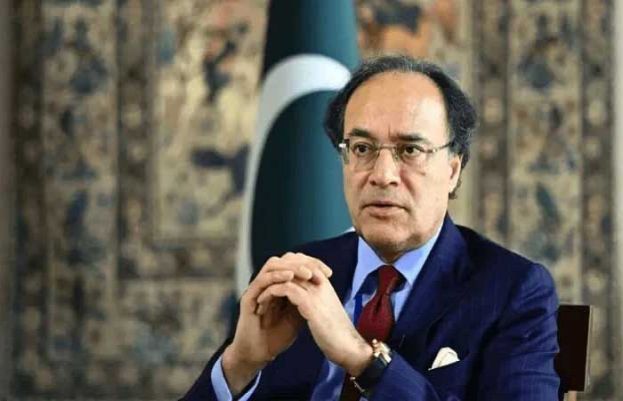Finance Minister Muhammad Aurangzeb has ruled out the need for United Nations (UN) assistance for flood relief, stating that Pakistan has sufficient resources within its development budget of Rs4.3 trillion (around US$12–13 billion) to manage rescue and rehabilitation efforts. Speaking as the keynote speaker at the Pakistan Business Summit in Peshawar, Aurangzeb emphasized that by efficiently prioritizing and coordinating between the federal government and provincial administrations, available funds could be redirected to address the devastation caused by the recent floods, which have severely affected agricultural areas nationwide. He highlighted Pakistan’s strong performance in remittances, which reached $38 billion last year and are projected to grow to $41–43 billion in the current fiscal year. Aurangzeb also noted that Pakistan successfully repaid $500 million in Eurobond obligations in September without disrupting the market and is well-positioned to meet the $1.3 billion Eurobond repayment due in April 2026. The summit marked the first major business event in Khyber Pakhtunkhwa’s capital in several years, drawing policymakers, investors, and corporate leaders from across the country under the theme “Shaping What’s Next.” Other key speakers included Acting President and Senate Chairman Yusuf Raza Gilani, KP Governor Faisal Karim Kundi, Federal Minister for Privatisation Mohammad Ali, KP Finance Advisor Muzammil Aslam, and former minister Mohammad Azfar Ahsan. Aurangzeb reiterated that inflows into the formal economy were on the rise and projected continued growth in remittances. He also mentioned that the policy rate, currently at 11%, is expected to be gradually lowered during the fiscal year, noting that while the central bank controls the rate, there is enough flexibility to ease it further. He stressed the importance of pursuing structural reforms to strengthen the private sector and restore public confidence in the tax authorities. “We are making progress in both widening and deepening the tax base,” he added. The Finance Minister highlighted that the Federal Board of Revenue has been streamlined into a tax/revenue collection body, while economic policymaking has shifted to the Finance Division. The tax policy office of the Finance Division will present the budget for the next fiscal year. On the privatisation front, Aurangzeb stated that 24 state-owned enterprises have been transferred to the Privatisation Commission. Regarding foreign direct investment and international engagement, he said that recent visits to Beijing, Riyadh, and New York had produced tangible outcomes. At the summit, awards were presented to Dr Rahman of RMI, Dr Abdul Bari Khan of Indus Hospital, and squash legend Jahangir Khan for bringing international recognition to Peshawar through their achievements. Closing the summit, former air chief marshal Sohail Aman said Pakistan was at an “opportune moment” where a favourable external environment, internal cohesion, a willing private sector, and government support created the “perfect time to lift off.” Pakistan suffers Rs371bn flood losses It may be noted here that Pakistan has apprised the International Monetary Fund (IMF) of economic losses amounting to Rs371 billion in the aftermath of recent floods, which severely damaged infrastructure and agriculture. Ministry of Finance high-ups briefed the IMF review mission about external financing needs of $26 billion, out of which $12 billion will be rolled over, citing the example China’s ambassador gave commitment before the IMF last time that all rollover and refinancing requirements of Pakistan would be fulfilled within the stipulated timeframe The government had set a real GDP growth target of 4.2% for the ongoing fiscal year (FY26), approved by the National Economic Council (NEC) and parliament at the time of the budget. However, in light of the flood-related damages, authorities have projected a downward revision of the target by 0.3% points, bringing it to 3.9%.
Pakistan can manage flood relief on its own, says Finance Ministry

